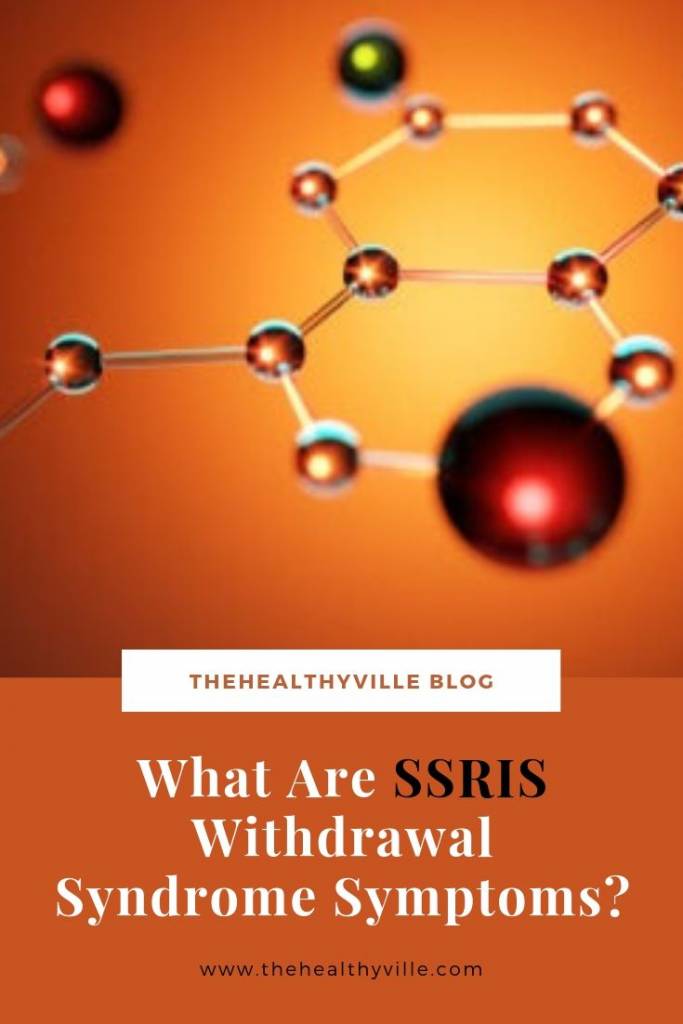What are SSRIS withdrawal syndrome symptoms? When do we know we are experiencing them? Do we need to do react and when?
When you stop taking the SSRI antidepressant abruptly, the appearance of the symptoms of SSRI withdrawal symptoms happens. Depending on the antidepressant, the chances of suffering from this syndrome are different.
The SSRI withdrawal syndrome appears when you abruptly withdraw the administration of these drugs. Especially after a treatment of four to six weeks.
In this sense, the withdrawal syndrome of SSRI antidepressants occurs when you stop taking the antidepressant abruptly. This is because the body cannot adapt to that sudden decrease in the level of serotonin in the synaptic space.
SSRIs, selective serotonin reuptake inhibitors, are a group of medications doctors use to treat depression. Serotonin is a substance that nerves use to send messages to each other, a neurotransmitter.
The specific mechanism of action of serotonin reuptake inhibitors is to slow down the reuptake process of this neurotransmitter, whereby the nerve cells that secrete serotonin re-capture it.
What are SSRIS symptoms?
As a consequence of the sudden increase in serotonin, the symptoms of SSRI withdrawal symptoms appear, which generally last a few weeks. Among the symptoms that may appear are:
- Sickness.
- Tremors.
- Headaches.
- Anxiety.
- Sleep disorders and tiredness.
In addition, flu-like symptoms may appear, such as sore muscles and chills. Another important aspect to keep in mind is that the symptoms of depression may reappear after you stop taking an antidepressant. In fact, sometimes it is difficult to differentiate between withdrawal symptoms and depression symptoms.
To minimize the risk of withdrawal from SSRIs, talk to your doctor before you stop taking an antidepressant. Normally, your doctor will recommend you gradually reduce the dose of the antidepressant for several weeks or more. Thus, your body adapts to the absence of the medication.
However, in some cases, another antidepressant or other short-term medication may be prescribed to help relieve symptoms. In this way, we help the body to adapt gradually to the changes.
Evidence on SSRI withdrawal syndrome
An analysis of adverse reactions to SSRIs reported in the United Kingdom showed that withdrawal symptoms were reported more frequently with paroxetine than with other drugs in the group such as sertraline, fluvoxamine and fluoxetine.
According to these studies, it seems that the variation in the incidence of SSRI withdrawal syndrome is related to the pharmacokinetic characteristics of each antidepressant drug.
Specifically, drugs such as paroxetine, whose elimination half-life is relatively short, over 21 hours, together with the fact that their metabolites are not active, favor the appearance of the symptoms of SSRI withdrawal symptoms.
However, with drugs such as fluoxetine it is more difficult for the symptoms of SSRI withdrawal symptoms to appear. This is because it has a long elimination half-life, between two and three days. In addition, their metabolites are active and have a elimination half-life of 6 to 9 days.
It is necessary to be aware of the possible risk of the appearance of the symptoms of this syndrome when you abruptly interrupt the antidepressant treatment. Also consider what antidepressant it is and what pharmacokinetic characteristics it has.
However, when removing any antidepressant from this group, it is advisable to reduce the dose gradually in order to avoid these disorders. Especially with drugs that have a shorter elimination half-life, such as paroxetine.
Conclusion
When the administration of a selective serotonin reuptake inhibitor (SSRI) is abruptly discontinued, SSRI withdrawal symptoms may occur. The syndrome can manifest itself with symptoms such as vertigo, paraesthesia, tremor, nausea, anxiety, palpitations, sleep disorders, irritability, agitation and headache.
Studies have shown that SSRI withdrawal symptoms are more frequent when antidepressants are abruptly withdrawn with a short elimination half-life, and even more so if their metabolites are inactive.
Don’t forget to SHARE what are SSRIs symptoms and what to do with your friends and family on your social networks!

